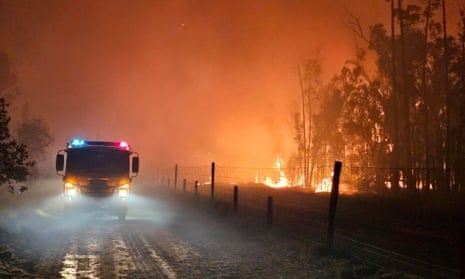Introduction to Brisbane’s Bushfire Season
Hey there, wonderful parents of Brisbane! As guardians of young ones, your role is not only massively rewarding but also comes with its fair share of challenges – and one of those challenges might just be the bushfire season that rolls around our sun-kissed city. Don’t fret! This guide is all about helping you stay informed, prepared, and, most importantly, calm during the Brisbane fire season. Let’s dive in and arm ourselves with knowledge to keep our families safe and sound!
Understanding the Fire Season in Brisbane
Fires, particularly bushfires, are part and parcel of life in many parts of Australia, including our lovely Brisbane. They tend to occur more frequently during the warmer months due to dry vegetation, hot temperatures, and sometimes, a little spark from Mother Nature’s lightning or, unfortunately, human activities. It’s crucial to understand the fire season’s timeline, which typically stretches from December through February, although it can extend into November or even March during particularly dry years.
Subscribe to Local Alerts and Warnings
Staying updated with the latest information can be a game-changer during the fire season. Thank goodness for technology, right? Make sure you’re subscribed to Queensland’s Fire and Emergency Services alerts and have downloaded apps like Fires Near Me Australia and BOM Weather. These platforms can give you real-time updates on fire dangers in your area and across Brisbane. Always check for updates, so you’re not caught off guard!
Fire-Proofing Your Home: Tips for Extra Safety
Is your home ready to face the fiery challenge? Fire-proofing doesn’t have to be overwhelming. Start with simple yet effective steps like clearing gutters of leaves and debris, keeping the grass trimmed, and removing flammable objects from around your house. And guess what? This could also be a fun weekend family activity – getting everyone involved in making your home a safer place!
Practicing Fire Drills With the Whole Family
Practice makes perfect, or at the very least, it prepares us for emergencies. Organize regular fire drills with your kids. Turn it into an engaging activity while highlighting the seriousness of knowing what to do if a fire ever comes too close for comfort. Remember to plan several escape routes and designate a family meeting point that is well away from danger zones.
Creating an Emergency Kit: The Essentials
Every superhero needs their trusty toolkit, and for you, dear parent, that’s an emergency kit. Ready to prepare yours? It’s easier than you think! Include essentials like water, non-perishable food, a first-aid kit, medications, important documents (think passports, birth certificates), a battery-powered radio, and don’t forget a few comfort items for your kiddos – perhaps their favorite teddy bear or a deck of cards.
Remember, being proactive and having an action plan can make significant strides in ensuring your family’s safety when the fire season looms. By staying alert, informed and prepared, you can navigate this challenging period with less stress and more confidence. Continue scrolling down to get more in-depth information on each of these topics and arm yourself with the knowledge you need to keep your family both happy and safe during the Brisbane fire season.

Five Things Parents Should Know in Preparing for Brisbane Fires
1. Understand and Respect Fire Bans and Ratings
Fire bans and ratings are put in place for a reason – to protect you, your family, and the entire community. Make sure you understand the different fire danger ratings, and adhere to total fire bans when declared. Teach your children about these too. No outdoor fires means exactly that, not even for roasting marshmallows!
2. Have a Communication Plan in Place
In this digital age, communication is key. Make sure each family member knows how to get in touch with one another should you be separated. This could include memorizing phone numbers (old school but effective), using social media check-ins, or setting up a family chat group. In a worst-case scenario, discuss an out-of-town contact who can act as a central communication point.
3. Protecting Precious Lungs – Be Smoke Ready
Smoke from bushfires doesn’t play nice, especially with little lungs. Keep your family’s exposure to poor air quality at a minimum. Stay indoors on smoky days, use air purifiers if available, and don’t hesitate to see a doctor if anyone in your family has trouble breathing or other symptoms that concern you.
4. Engage and Educate Your Children
All too often, we try to shield our children from scary situations, but in the case of bushfires, knowledge is comforting. Teach them about bushfire safety through age-appropriate discussions and resources. There are lots of great books and interactive apps that can help children learn about fire safety through storytelling and games.
5. Be Mindful of Emotional Support
Bushfires can be a very stressful and traumatic experience, even if you’re not directly affected by them. It’s important to recognize signs of stress in your children and to provide emotional support or seek professional help if needed. Maintain routines as much as possible and encourage the expression of feelings through talking, drawing, or other creative outlets.
By knowing these five essential points, you’ll be in a much better position to create a safe and secure environment for your family. Stay vigilant, stay informed, and most of all, stay kind to yourself during these trying times. Let’s look out for one another and remember, we’re all in this together!
For a more detailed dive into each of these critical points and additional resources to keep your family safe and well-prepared, keep reading below where we explore more on Brisbane’s bushfire preparedness. This is one read you won’t want to miss – our loved ones are depending on us!
Continue to Detailed Preparation Guide
For more great fun click here. For more information see here
Disclaimer
The articles available via our website provide general information only and we strongly urge readers to exercise caution and conduct their own thorough research and fact-checking. The information presented should not be taken as absolute truth, and, to the maximum extent permitted by law, we will not be held liable for any inaccuracies or errors in the content. It is essential for individuals to independently verify and validate the information before making any decisions or taking any actions based on the articles.




